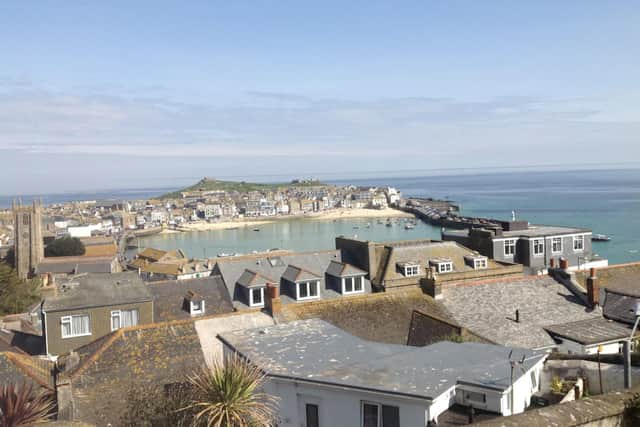Britain had a chance at creating a staycation boom and blew it - Mark Casci
With international travel so unpredictable thanks to the Government’s ever-changing guidance as to which countries required the most stringent of restrictions, Britain was set for a staycation boom that is predicted to boost the economy by as much as £30bn.
The demand was there for all to see. Holiday cottage agency Sykes said that it had seen bookings rise by 40 per cent on normal levels. Twenty eight per cent of Briton’s had said that the pandemic made them more disposed to holidaying domestically.
Advertisement
Hide AdAdvertisement
Hide AdThe Yorkshire Dales and destinations such as Runswick Bay near Whitby were cited as the fastest growing areas for prospective bookings.


These magical places, so impacted by the pandemic, had a fantastic opportunity to win new converts and make the staycation boom last well beyond 2021.
Unfortunately, the UK tourism sector walked into this summer with one hand tied behind its back, and with numerous further obstacles still to come.
Firstly, a cursory glance of any booking websites will throw up embarrassing examples of inflated prices. As I type I was shocked to see one, admittedly high-end, holiday cottage in the South West priced at close to £7,000 for a week. Don’t get me wrong, I love a hot tub as much as the next man but that sort of money would get you a fortnight in a very comfortable all-inclusive resort in the Caribbean under normal circumstances.
Advertisement
Hide AdAdvertisement
Hide AdHowever, I don’t intend to dwell on a minority of unscrupulous holiday home owners seeking to capitalise on desperate consumers who just want a change of scene.


The reality is most of the problems facing the market came from outside forces.
As the UK hospitality sector was finally allowed to open fully in May it found itself chronically short of its most essential resource – people.
As late as the end of August, stats from coaching firm Ezra showed the sector nationwide to be carrying 36,000 vacancies. Months of enforced closure saw staff forced to seek employment elsewhere. The chaotically managed tier system imposed last Autumn made working hours impossible to predict for thousands. It is easy to understand why some left altogether. For those that were able to open, it was often with a limited service.
Advertisement
Hide AdAdvertisement
Hide AdThe much-criticised NHS app then chipped in to exacerbate the problem, with thousands of staff nationwide forced to stay home after being ‘pinged’, sometimes owing to neighbours with a positive test alerting the smartphones of those residing on the other side of a brick wall.


And all of this happened of course after Brexit dealt a hammer blow to the sector, as many EU nationals who previously formed such a significant portion of the workforces of pubs, hotels and restaurants, either returned home or were unable to obtain the necessary documents to work here.
I witnessed the impact of all of this last week when my family and I travelled to Cornwall. While it is not Yorkshire, I cannot deny it is a stunning county, with superb beaches, beautiful countryside and wonderful people. However, the simple act of even getting hold of a portion of fish and chips often proved difficult and indeed on one occasion impossible. And as for eating out in an actual restaurant? Forget about it. I would probably have needed to book it during the Gulf War.
Levity aside, it was impossible not to feel sorry for the individual businesses involved who were having to turn away paying customers owing to shortages of staff to serve and prepare food for such inflated numbers of visitors.
Advertisement
Hide AdAdvertisement
Hide AdIt has, in some cases, led to ugly scenes in which holidaymakers have become abusive to staff when turned away, or leaving negative reviews on Tripadvisor to damage their reputation.
Such instances are disgraceful yet one fears for the longer-term damage that the sector has endured as demand so demonstrably has outstripped supply.
What makes it all the more galling is that it was not its fault, nor that it may not get such a chance ever again.
Comment Guidelines
National World encourages reader discussion on our stories. User feedback, insights and back-and-forth exchanges add a rich layer of context to reporting. Please review our Community Guidelines before commenting.